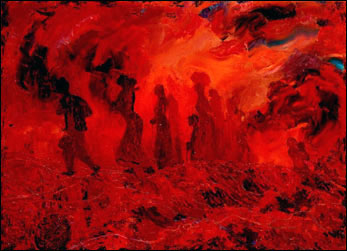When did you start enjoying writing?
One of my new students wrote this question to me on a form modeled after an exercise I borrowed from educator Lee Ann Spillane:
What strikes me about the question is that I have an answer beyond a basic "Oh, I have always loved writing" or "This one teacher inspired me..."
I started to enjoy writing when writing started to matter...to me. Not for school. Not for any assignment. When I started to write for me I started to enjoy it.
It happened organically.
I was in graduate school and I fell in love for the first time. Sure, I had crushes and girlfriends in high school and when I was in middle school. College too. But this time, falling in love unhinged my bones from my muscles from my nerves from my breath. Love made me a puddle but she did not know me well. We were not a couple.
So I started to write to her.
 |
| Outside of The Rodin Museum--the first museum I loved. |
It was all I could do. Yes, I talked to her--but I was a puddle, remember. Writing let me be sincere. Writing let me experiment with letter writing, poetry, sketching...everything. Writing helped me sort out of the jumbled mess of bones and nerves in my gut and it allowed me to take a breath, reorganize myself, and reach out to her--my audience of one.
This is when I started to enjoy writing. I found out so much about myself. It was at this point where I started to try other art forms even though I had no experience with them: painting, sculpture, sketching with charcoal.
Writing opened doors for me--not only to express myself to my first love but also it encouraged me to try new things. It gave me a new perspective. I thought about things differently. I realized, as a writer, that even though I still knew so little, writing (and all of the arts) could be a way for me to explore and learn so much more about the world.
Since then, I have not stopped writing or trying new things. I believe being a writer has introduced me to ballet, the orchestra, opera, different types of theater, photography, in addition to all kinds of painting techniques and artists.
I love writing today, yes, but when it all started for me it all started with a girl.
















